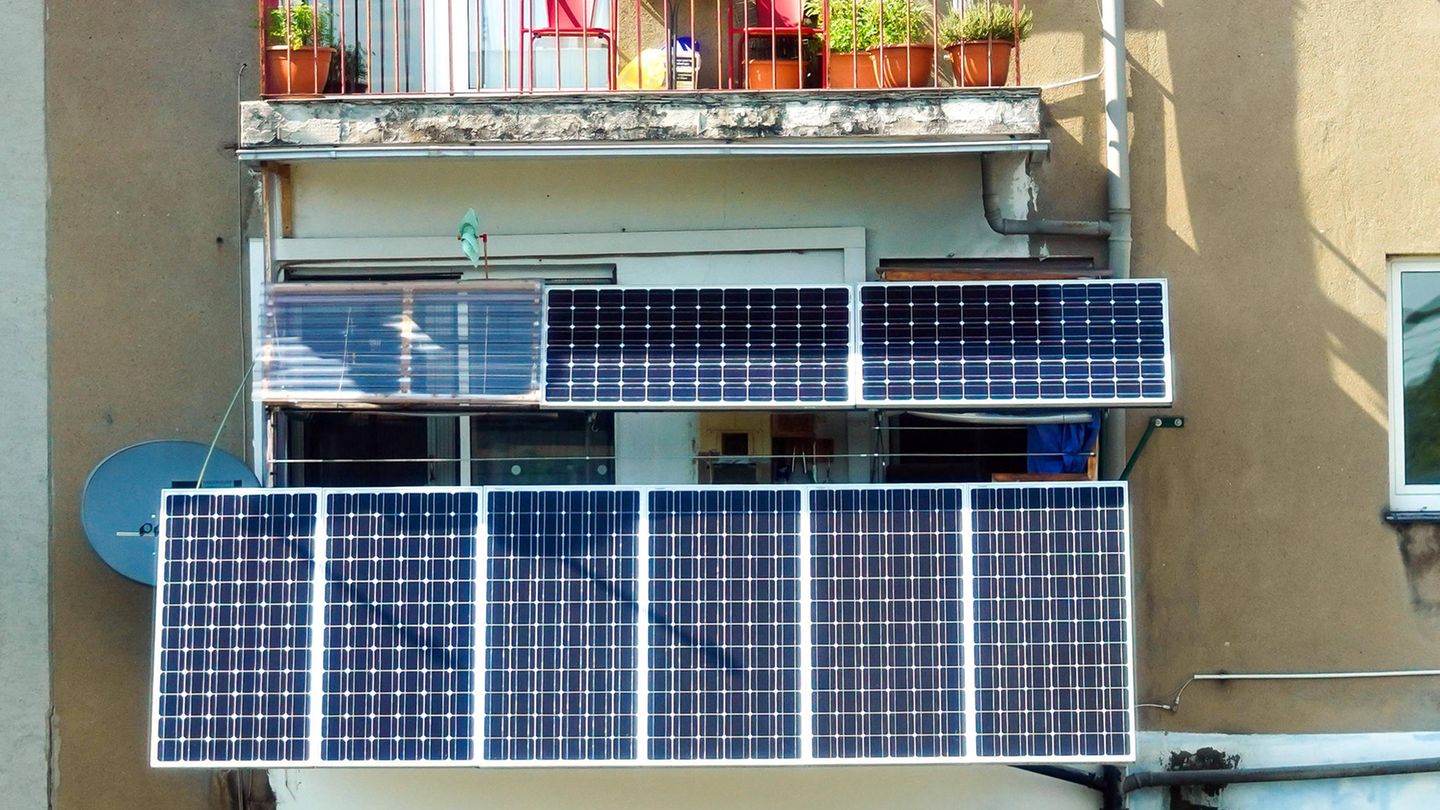Hundreds of thousands of balcony power plants are apparently technically unsafe because inverter manufacturers have secretly not installed an important safety module. The Federal Network Agency has now asked the company to inform customers. They have to take their balcony power plants off the grid.
Producing solar power yourself is all the rage. Above all, city dwellers without their own homes use so-called balcony power plants for this purpose. They usually consist of just one or two photovoltaic modules, each with 300 or 400 watts and a connected inverter, which converts the direct current into the usual alternating current. It also checks that no more electricity flows into the grid than the grid operator allows. Simply connect to the socket and the home power plant is already running. In the meantime, you can even buy the systems from discounters.
Now a discovery is shaking the scene: providers of balcony power plants such as Laudeley Betriebstechnik from Ritterhude found out more or less by accident that apparently hundreds of thousands of inverters are technically inadequate and do not live up to the promises of their TÜV certificate in terms of safety. According to Holger Laudeley, who calls himself the “inventor and namesake of balcony power plants” in his YouTube videos, the main focus is on models from the Chinese supplier Ningbo Deye Technology. He simply left out an important safety relay and doesn’t deny it. “The inverter is no longer safe,” says Laudeley, accusing Deye of “massive fraud.” His company is investigating a criminal complaint.
Suddenly a part was missing in the inverter
The engineer discovered the gap in the circuit board when the responsible federal network agency requested a Deye SUN300 inverter to have it checked for electromagnetic sensitivity; apparently there were doubts. When Laudeley examined the device himself, he saw that a slot where a so-called “disconnect relay” was supposed to sit was empty. It would have the task of switching off the inverter safely if – largely improbable – special complications occur (single-fault safety). According to the VDE standard AR-N 4105, this circuit breaker is mandatory for all inverters. And in the Deye original model that the TÜV had certified, it was probably also properly available.
When Laudeley asked Deye to supply him with a full part, that’s what happened. In fact, a black relay now seemed to be installed – however, it turned out to be a dummy during a test. There are only guesses as to why Deye is doing this. Experts assume that the relay, which is actually inexpensive, is too prone to failure and would not last through the warranty period: That’s why the manufacturer left it out right away.
How many balcony power plants are affected?
According to Laudeley, this gap also opens up with other inverters from Deye. But also with other manufacturers – he does not name names. As far as we know, there are around 1.5 million installed in the German market; about 400,000 of them come from Deye. “A scandal!” Laudeley rages.
Should a mass fraud manifest itself, it comes at the wrong time. Politicians are currently discussing a law to accelerate the expansion of balcony power plants; the performance limit should be set higher. Now, of all times, manufacturers are supplying inverters that do not comply with the German safety standard.
The Federal Network Agency responsible confirmed that the relay was missing in the devices they tested. Manufacturer Deye have already suggested remedial measures. This is what is known as a series relay, i.e. a component that can be retrofitted and that consumers can connect themselves. Deye wants to achieve rapid re-certification in a few weeks, but the Bonn authorities will first examine the idea thoroughly for suitability – approval is by no means certain. It recommends consumers to contact their retailers or the network operator.
The power plants have to be taken off the grid
Can it happen that hundreds of thousands of owners of a balcony power plant will soon no longer be able to use it? This is what it looks like. The Federal Network Agency says so star: “If consumers operate devices that have no or an invalid certificate for compliance with VDE-AR-N 4105, these devices may not be operated on the distribution network.” On July 14, Bonn-based Deye called on “the end customers of the affected devices to be informed immediately about the situation and about the temporary disconnection from the network for devices that have already been installed.”
When asked by the Heise.de website, the Association for Electrical, Electronic & Information Technologies (VDE), which sets the standards, also stated that a simple solution using an external relay was not possible. If the Federal Network Agency confirms the situation after the tests have been completed, all affected balcony power plants must be shut down immediately.
Bad news. After all, you don’t have to worry that something terrible will happen because the relay is missing, says Laudeley: “Inverters that run, run.” But for the future it is urgently necessary to ensure security.
Source: Stern




